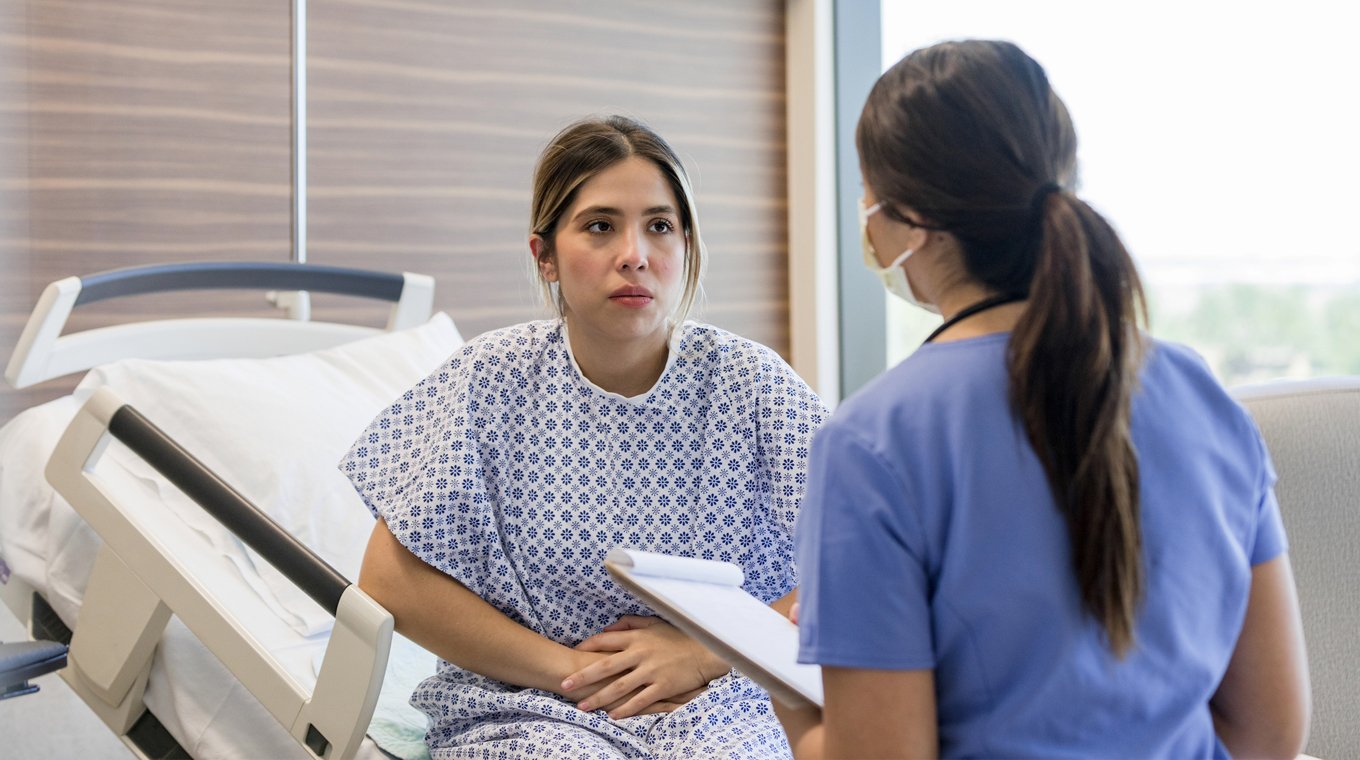
In this article
They may sound scary, but if you’ve recently been diagnosed with an ovarian cyst, the good news is that they are relatively common and usually harmless. It is estimated that about 10 out of 100 women have ovarian cysts, and less than 1% are cancerous. The better news is that there are many different options for treatment, ranging from natural remedies to medical procedures. So let’s talk about how to shrink those ovarian cysts — or at the very least, how to shrink any pain or stress they may be causing you.
What are ovarian cysts?

Ovarian cysts are small sacs filled with fluid or semi-solid material that can develop on an ovary. They can vary in size, from less than a half inch to greater than four inches.
Causes of ovarian cysts include:
- Ovulation. The most common type of ovarian cysts are functional cysts (also called follicular or corpus luteum cysts). They occur as a result of ovulation, aren’t disease-related, and usually go away on their own within 60 days.
- Hormonal imbalance. Polycystic ovary syndrome (PCOS), a condition in which the ovaries produce an abnormal amount of male sex hormones (usually present in women, but in small amounts) and can cause numerous small cysts to form in the ovaries. Fertility treatments that encourage ovulation can also be a culprit.
- Abnormal cell reproduction. This causes cysts called cystadenomas (fluid-filled) and dermoids (consists of cells that make up all types of tissue in the human body, ranging from skin, hair, teeth, and even brain tissue).
- Pelvic inflammatory disease (PID). Bacteria from this infection can spread from the cervix to the ovaries and cause cysts to form.
- Endometriosis. This is a condition in which cells similar to the lining of the uterus grow outside the uterus, forming cysts called endometriomas in the advanced stages of the disease.
- Ovarian cancer Unlike the conditions above, these cysts are tumors — solid masses of cancer cells.
Who is at risk?
Anyone with ovaries can develop an ovarian cyst. Your chances increase if you are menstruating, pregnant, have had an ovarian cyst before, are taking medication to help with ovulation, or have any of the previously listed medical conditions.
How are ovarian cysts diagnosed?
“The diagnosis of an ovarian cyst is most often made based on imaging rather than by physical examination, laboratory testing, or diagnostic procedures,” Elisa Ross, MD, and Chelsea Fortin, MD, wrote for Cleveland Clinic. Experts at the Mayo Clinic agree, also emphasizing the importance of routine pelvic exams, especially for post-menopausal women.
More from Mom.com: Getting Pregnant with PCOS: What to Know
Is there medication to dissolve ovarian cysts?

Most ovarian cysts are benign and naturally go away on their own without treatment, and there is no medication that can actually dissolve them. The most common type of treatment is “watchful waiting.” Lauren, mom of three, was diagnosed with an ovarian cyst early in her third pregnancy. Two months later, it was gone.
“I didn’t have any symptoms; my OB found it during a routine checkup. It got bigger at one point and I had to have some blood work done. The results came back normal, so my doctor decided not to pursue any treatment,” Lauren told Mom.com. “Then, at a recent checkup, my doctor couldn’t detect the cyst, so he thinks it may be gone.”
In addition to “watchful waiting,” doctors may recommend treatments to prevent the recurrence of additional cysts, or offer pain relief to those experiencing symptoms:
Preventive Medication
“Oral contraceptives may prevent new functional cysts from forming,” according to Dr. Ross and Dr. Fortin, since they help correct hormonal imbalance. “Oral contraceptives do not, however, hasten the resolution of preexisting cysts.”
Pain Relief
- Over-the-counter medication: Advil (ibuprofen), Aleve (naproxen), or Tylenol (acetaminophen) may help reduce pain.
- A heating pad on your lower abdomen may help relieve discomfort.
- Massage therapy may lessen pain by relieving stress and muscle tension.
- Transcutaneous electrical nerve stimulation (TENS): This device, often used by physical therapists, relieves pain by delivering a mild electrical charge into tense muscles.
Medical Procedures
In the case that ovarian cysts are large (two inches or more), persistent, causing symptoms, or potentially cancerous, healthcare providers may recommend surgery.
Options for surgery include using laparoscopy or laparotomy. These procedures require anesthesia. A doctor surgically removes the cyst by inserting a surgical instrument through incisions in the patient’s abdomen.
Natural remedies for ovarian cysts

If you’re seeking treatment through natural remedies, there are a few recipes that some practitioners believe can help relieve symptoms, prevent new growths, or increase overall immune health in general.
There is no scientific evidence to support that these remedies can actually help shrink ovarian cysts, but some research does suggest they can help reduce symptoms of and prevent polycystic ovary syndrome (PCOS).
PCOS is caused by hormonal imbalances, and women with PCOS are often insulin resistant. These treatments address both.
Natural home remedies:
- Flaxseed and flaxseed oil naturally lower hormones such as testosterone. They can also improve metabolic function, including insulin levels.
- Apple cider vinegar lowers blood sugar levels, which means it’s possible that it can both help treat PCOS and prevent ovarian cysts. A small 2013 study also suggests that it can help restore ovulation in women with PCOS.
- Blackstrap molasses and beetroot are both believed to be high in antioxidants (prevents or delays cell damage) and have anti-inflammatory properties. Beetroot is also believed to be antibacterial.
- Ginger, especially ginger tea, is another remedy commonly sought out as an antioxidant, an anti-inflammatory, and a cancer fighter. Some preliminary studies found that high doses of ginger can balance hormones and help improve PCOS.
- Sanjie Zhentong Capsule (SZC) is a Chinese herb that has been studied for many uses related to ovarian health. Among them is one small study that reported SZC effectively shrank ovarian cysts in about 82% of the participants’ cysts (compared with 52% of participants in the control group, who did not receive treatment).
Caution: Before starting any treatment, even natural cures, consult your doctor as some supplements, herbs, and teas can be dangerous, especially if you are pregnant or nursing, or are a patient with diabetes.




